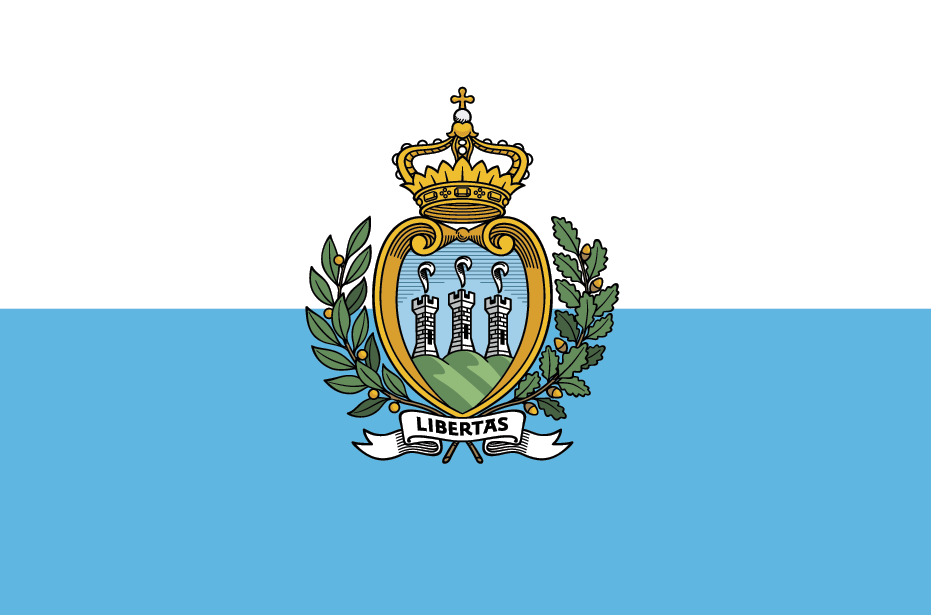
Sustainability Efforts
Country: San Marino
Explore sustainability efforts in San Marino. The United States Environmental Protection Agency (“EPA”) said it well when they state:
“Sustainability is based on a simple principle: Everything that we need for our survival and well-being depends, either directly or indirectly, on our natural environment. To pursue sustainability is to create and maintain the conditions under which humans and nature can exist in productive harmony to support present and future generations.”
About San Marino
San Marino, located in the heart of Italy, is one of the world’s oldest republics and the smallest independent state in terms of land area. It is known for its medieval architecture, narrow streets, and stunning mountainous landscapes. San Marino offers panoramic views from its mountaintop capital, also called San Marino, and is home to historical sites like the Three Towers of San Marino. The country has a rich cultural heritage, including a passion for the arts, music, and traditional festivals. Despite its small size, San Marino has a strong economy based on tourism, banking, and the sale of unique postage stamps and coins. Sustainability efforts in San Marino will enhance the country’s future.
Sustainability Efforts
Toggle each button below to “open” and “close” the presented data.

Poverty: In San Marino, the poverty rate has been relatively low, due to the high standard of living and prosperity that the country enjoys. However, the government has been proactive in ensuring no citizen is left behind. Initiatives include implementing robust social security measures and providing financial support for those in need. As of the latest data, the percentage of the population below the poverty line is below 5%.

Hunger: Hunger is virtually non-existent in San Marino. With a robust agricultural sector and efficient food distribution systems, the government ensures that everyone has access to nutritious and sufficient food. The rate of undernourishment is less than 2.5% according to FAO data.

Healthcare: San Marino boasts a world-class healthcare system. The country invests significantly in healthcare, with per capita expenditure on health being one of the highest globally. The state provides free healthcare to all its residents, ensuring comprehensive coverage. Additionally, efforts have been made to further improve healthcare services by integrating innovative technologies.

Education: Education in San Marino is universal, compulsory, and free, with a near 100% literacy rate. Recent educational reforms focus on improving the quality of education, incorporating digital technologies, and promoting inclusive education.

Gender Equality: Gender equality has been a high priority for San Marino. The government has enacted various measures, including legislation to promote gender parity in political and economic roles. A 2019 report showed that women represent nearly 50% of the workforce, and gender wage gap has decreased significantly over the past years.

Clean Water Sanitation: With an advanced infrastructure, San Marino ensures all its citizens have access to clean and safe drinking water and sanitation facilities. As per a 2022 report, nearly 100% of the population has access to clean water and sanitation.

Affordable Clean Energy: San Marino has made strides towards sustainable and clean energy. The country has set ambitious targets to reduce greenhouse gas emissions by investing in renewable energy. It currently generates around 30% of its electricity from renewable sources.

Economic Growth: San Marino has a high-income economy, primarily based on finance, industry, services, and tourism. To sustain economic growth, the government has invested in improving business regulations, encouraging entrepreneurship, and diversifying the economy.

Industry Innovation: Innovation is key to San Marino's economic strategy. The country has been investing in research and development, and encouraging startups. The creation of the Innovation Hub in 2020 stands as testament to this commitment.

Reduced Inequalities: San Marino has maintained relatively low income inequality compared to other countries. The Gini coefficient, a standard measure of inequality, stood at 0.28 in 2021. Policies such as progressive taxation and comprehensive social services contribute to reducing inequalities.

Sustainable Cities: San Marino is committed to creating sustainable and liveable cities. This includes promoting green building practices, improving public transportation, and implementing waste management solutions.

Responsible Consumption and Production: San Marino has adopted measures to promote responsible consumption and production. This includes implementing recycling programs, promoting the use of renewable resources, and encouraging businesses to adopt sustainable practices.

Climate Action: San Marino is dedicated to fighting climate change. The country has committed to reducing its greenhouse gas emissions by 20% by 2030, and is investing in renewable energy, energy efficiency, and sustainable transport.

Aquatic Environment: Despite being a landlocked country, San Marino has made efforts to protect its water resources. This includes implementing strict water management policies and investing in infrastructure to ensure clean and sustainable water sources.

Natural Environment: San Marino has been proactive in preserving its natural environment. The country has protected areas covering about 10% of its land area, and has been implementing measures to protect biodiversity, and promote sustainable land and forest management.

Peace and Justice Institutions: San Marino's peace and justice institutions are strong and robust. The country has a low crime rate and a well-functioning justice system, ensuring the rule of law and human rights are respected.

Partnerships for the Goals: San Marino is actively seeking partnerships at the regional and international levels to achieve its sustainable development goals. This includes collaborating with neighboring countries, engaging in multilateral organizations, and partnering with non-governmental organizations.



